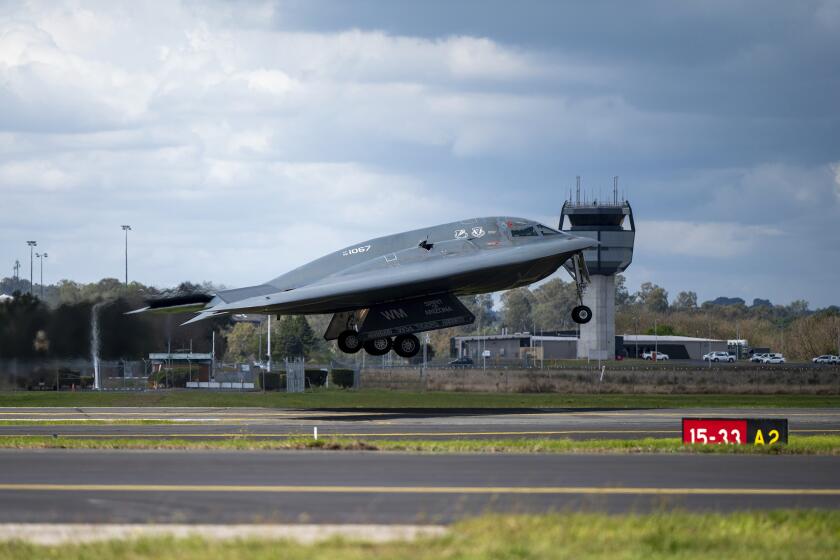Keeping Alive the Memories of World War II
Those of us who are boomers were born after World War II ended. But we grew up in its shadow. Every adult we knew had some kind of wartime experience to relate, even if he or she never left the home front. The war greatly influenced the politics we knew as children, as well as attitudes toward education, patriotism and social mores.
Now that we boomers are at--or closing in on--middle age, we have lived long enough to see events of our own lifetime fall under the category of history. For those now in college, World War II must seem as distant as World War I did to us.
Computer programmer John Davis is a boomer who wants to make sure the memory of the war does not fade away. In 1994, he created the “World War II: Keeping the Memory Alive” archive on the Internet, where he daily notes what was happening on the battlegrounds and home fronts on that same day in 1942.
“There are a lot of things people don’t know about the war,” Davis, 45, said from his home in North Carolina, where he works for the state. “If we don’t put them down now, they could be lost forever.”
His World Wide Web site, at https://members.gnn.com/jbdavis/ww2.html, was the offshoot of an Internet mailing list that mostly circulated among veterans. One subscriber had started to put together a daily chronicle of the war, but had given up the task. Davis revived the project and transferred it to the Web, where it could have a much larger audience.
Click on his entry for Aug. 19, 1942, for example, and you find out that on Guadalcanal, a group of Marines killed 34 Japanese soldiers encountered during a search for a secret radio station. In France, Canadian and British troops fought a nine-hour battle in Dieppe.
But there was also other news. In India, the son of Mohandas Gandhi was arrested for civil disobedience. For other days, Davis’ report includes baseball scores and news about rationing. “I’m not as interested in the tactics and strategy as I am in the effect the war had on people’s lives, on the battlefield and on the home front,” he said. “I wanted to know what it was like to live during the war.”
He chose to make his a “54 Years Ago” archive, so he could begin his account shortly after the U.S. entered the war. An English member of the list started a similar archive that begins in 1939, so when they are done all the war years will be covered.
Davis does the research on breaks from work. “I’m real lucky in that I work right next to the state library,” he said. “The librarians know me well.” He gets his battlefield information mostly from a chronology published by the Army in 1964. For home front and other news, he checks newspapers on microfilm.
On the site, Davis also posts photographs from government collections and personal accounts from people who send him e-mail. A number of these are laborious to get through, others--including a detailed, first-person account from a sailor who was on a ship in Pearl Harbor when the Japanese attacked--are riveting.
But there are already a huge number of books and films about the war.
“That’s true,” Davis said. “But if you look at World War I, the Korean War or Vietnam, they were all wars that had an outcome that didn’t affect the world all that significantly. But if the Nazis and Japan had won World War II, the world would be an entirely different place. . . .
“So many people sacrificed for that. I don’t want their memories lost.”
* Cyburbia’s e-mail address is david.colker@latimes.com.
More to Read
Sign up for Essential California
The most important California stories and recommendations in your inbox every morning.
You may occasionally receive promotional content from the Los Angeles Times.











